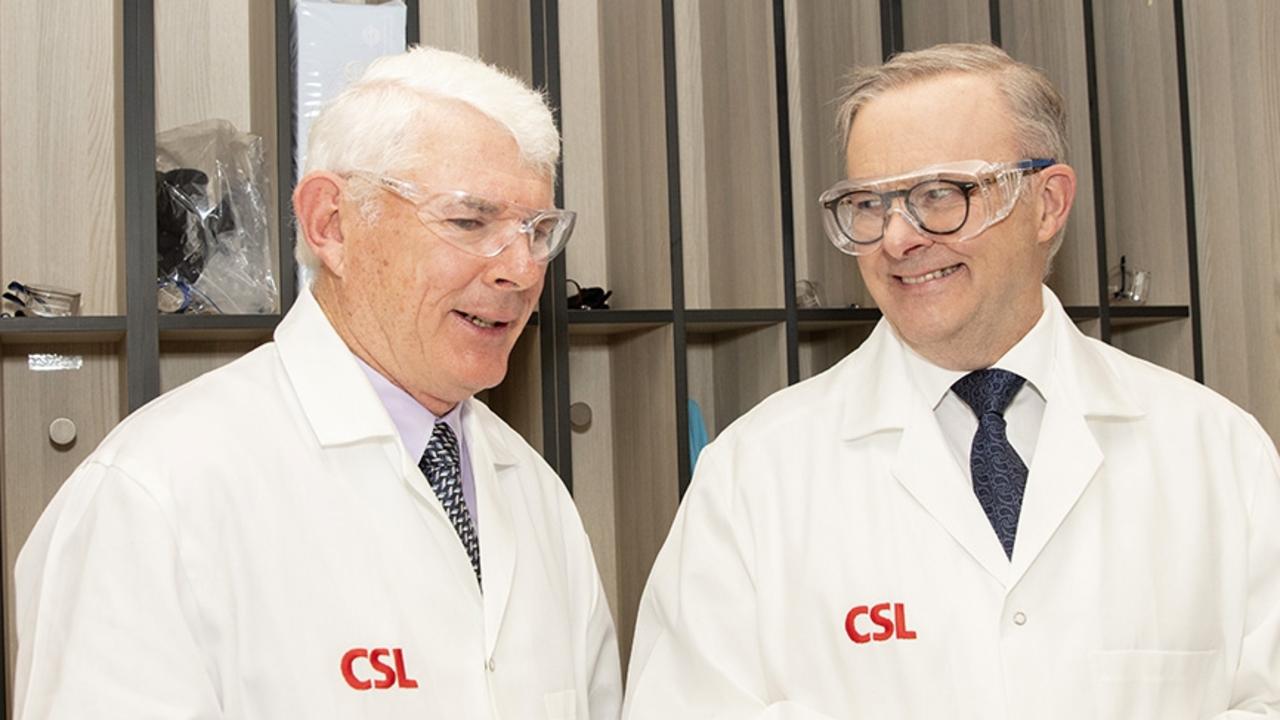Key witness rejects fuel findings as Outback Wrangler breaks down
A key witness has rejected the ATSB’s findings that running out of fuel ‘likely’ caused the fatal chopper crash that killed Netflix star Chris Wilson as the NT DPP considers more charges.
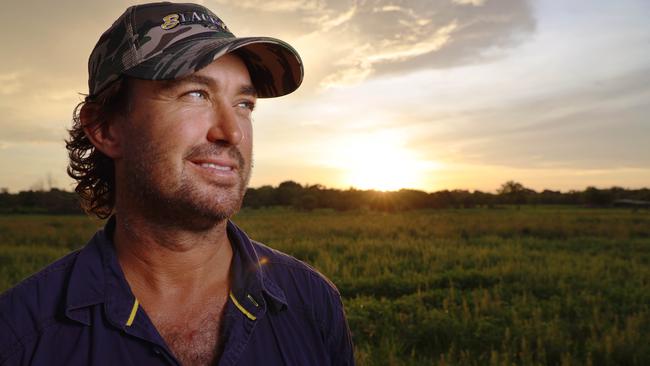
A key witness has rejected the national transport safety watchdog’s findings that running out of fuel “likely” caused the fatal chopper crash that killed Netflix star Chris Wilson as the Northern Territory Director of Public Prosecutions considers whether more charges should be laid.
The Australian Transport Safety Bureau yesterday published its 113-page final report into the accident, finding that the helicopter – owned by celebrity croc-wrangler Matt Wright – “likely” collided with terrain on the morning of February 28, 2022, because the pilot forgot to refuel it.
But that key finding is facing backlash, both because those first on scene have said there was fuel in the tanks when they arrived and egg collector Tim Luck insists that he filled the chopper’s tank himself.
This comes amid revelations Wright has been forced to shut down his aviation company Helibrook and sell his helicopter fleet following the accident which killed his reality television co-star. “CASA confirmed that Helibrook was suspended from operation as it no longer had the required key personnel,” the ATSB said.
After its report was published on Wednesday, Wright shared a video on social media expressing shock at the findings, which he has known about since August, and claimed that the investigation had been unfairly focused on him. “The focus of this investigation has been about Willow and myself because we’ve been on TV but not about the cause of the accident,” he said, through tears.
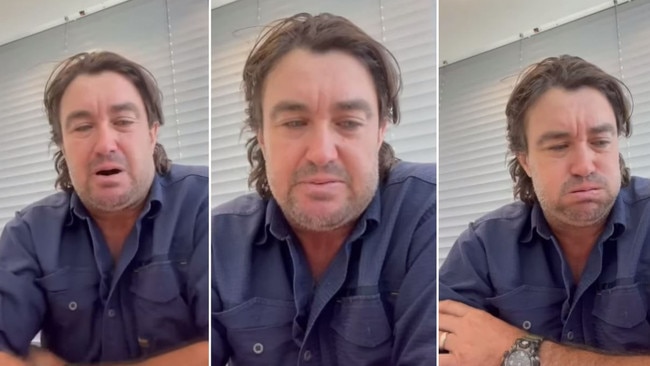
Wilson, 34, was slinging beneath the helicopter when it crashed, soon after taking off from a clearing, on the King River, in a remote part of West Arnhem Land.
Pilot Sebastian Robinson, who was flying the Robinson R44 Raven II helicopter, registered VH-IDW, suffered severe spinal injuries and is now paraplegic.
That morning, three crocodile egg collecting crew had set off from Helibrook’s base at Noonamah for a fuel drum site at Mount Borradaile.
The plan was to refuel there before flying another 20 minutes to the King River staging area.
“There were no records of the fuel uplifted at Mount Borradaile,” the ATSB report said.
“Those present at Mount Borradaile reported that the R44 helicopters were ‘hot refuelled’.
“The accident pilot reported that their normal action was to always fill the helicopter to full at Mount Borradaile.”
Luck has told The Australian – and authorities – multiple times that he vividly remembers filling up the chopper at Mount Borradaile, just 20 minutes flying time before the crash, because fuel spilt out the top of the tank.
The egg collector said that when he landed at Mount Borradaile with pilot Michael Burbidge, he went straight over to VH-IDW and took over fuelling from Wilson, who was using the second crew’s fuel pump.
“They (Wilson and Robinson) were getting everything ready for collecting … so I went over and helped them fill up,” he said.
“I remember and it’s ingrained in my brain that fuel came out the top of it.
“I remember the fuel overflowed because Willow called me an idiot.
“Otherwise it wouldn’t stand out for me because I’ve filled choppers up a thousand times.”
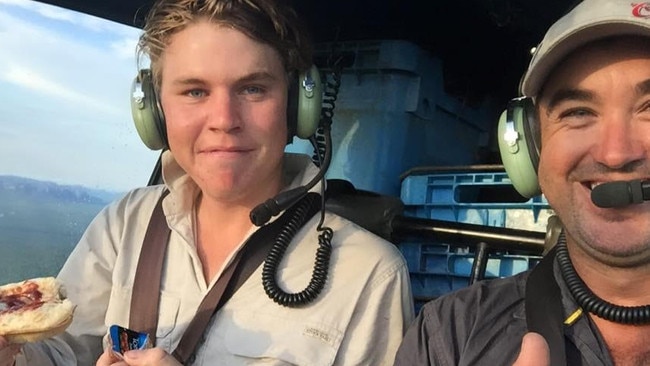
The ATSB says the helicopter was “likely not refuelled” at Mount Borradaile.
“Following likely not refuelling at Mount Borradaile, the pilot did not identify the reducing fuel state before the helicopter engine stopped, probably due to fuel exhaustion,” the report said.
“During the autorotation, the pilot released the egg collector above a likely survivable height, resulting in their fatal injuries.
“The pilot continued the autorotation to the ground but there was insufficient main rotor energy to cushion the landing, resulting in serious injuries to the pilot and substantial damage to the helicopter.”
In ATSB reports, the probability expression “likely” means there is a more than 66 per cent chance that something was true or occurred.
Luck said the fuel starvation finding was “absolutely ridiculous” because for it to be true, an “incredible” sequence of mistakes would have had to have occurred.
Robinson would have had to fail to fuel the chopper at Noonamah that morning, and then again at Mount Borradaile, and for both Robinson and Wilson to not notice the bright fuel light come on.
The ATSB report confirmed that all warning and caution lights were inspected and working at the time of the crash.
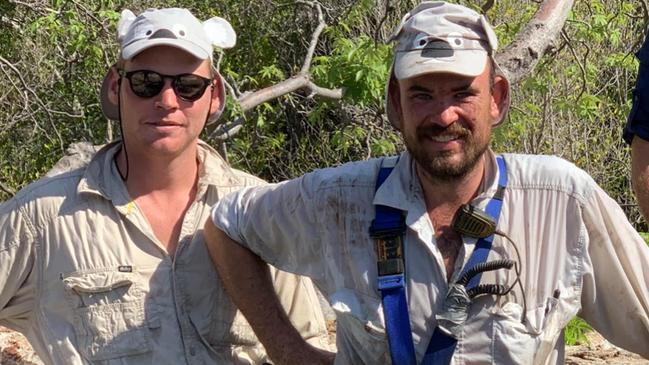
After reaching the King River staging areas, the crews set off to harvest their allocated crocodile nests.
Later that morning Burbidge discovered Wilson deceased and Robinson lying critically injured, next to the wreckage of the destroyed chopper, in a paperbark swamp.
Wright immediately flew to the scene with Mick Burns, who owns the crocodile egg harvesting business, and former senior police officer Neil Mellon.
Both Burns and Mellon told the ATSB that when they arrived at the crash site they witnessed Burbidge look into the destroyed chopper’s fuel tanks and confirm they contained fuel. Wright also told the ATSB he saw fuel in the destroyed chopper’s tanks while at the crash site.
“The first person to arrive at the site could not recall checking the fuel tanks, but 2 others who arrived in the second Helibrook helicopter reported having observed the first person to arrive look in one tank and advise that there was fuel visible,” the report said.
“In addition, the Helibrook chief pilot who was on board the second Helibrook helicopter reported looking in one tank and seeing a shimmer of fluid; however, they did not dip the tanks to check the quantity.
“The first person to arrive at the accident site reported that there had been a fuel smell, but subsequently reported that the fuel smell may have been from a damaged jerry can that had been behind the pilot’s seat at the time of the accident.”
There were two full 20L jerry cans on-board VH-IDW at the time of the crash. The jerry cans were removed from the crash site and never obtained by the ATSB.
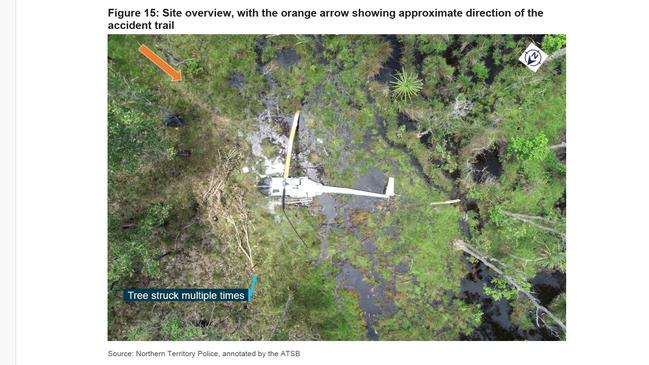
The ATSB said investigators only drained about 250ml of blue fuel from the main tank’s bladder when the wreckage was inspected in Darwin days later after being slung out of the swamp and then transported by road.
However witnesses told the ATSB that only green fuel was available at Mount Borradaile on the morning of the crash.
The ATSB’s Chief Commissioner Angus Mitchell yesterday told The Australian he was confident in his team’s findings but conceded their investigation had been plagued with challenges including a contaminated crash site, missing evidence and inconsistent witness statements.
Mr Mitchell said investigating this crash was the first time he had referred potential offences under the Transport Safety Investigations Act 2003 to the Australian Federal Police due to concerns that those who were first on site had deprived his agency of crucial evidence.
The AFP subsequently referred the matters to NT Police, who investigated and provided a brief to the NT DPP.
The Australian understands that the DPP is still considering the matters which relate to “the status of evidence available” to the ATSB for the purpose of its ‘no blame’ safety investigation.
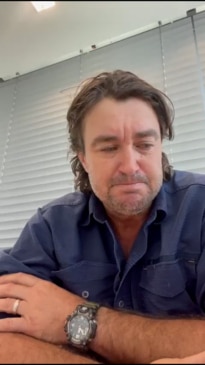
NT Police yesterday told The Australian that they had shared a comprehensive investigation file with the DPP, WorkSafe NT and the Civil Aviation Safety Authority.
“The file includes maintenance and fuel records, expert opinions concerning the fuel system and airworthiness of the stricken aircraft, and toxicology analyses of individuals involved in the crash,” a spokesman said.
“These agencies are currently examining the culpability of individuals and entities with respect to the tragic death of Christopher ‘Willow’ Wilson.
“Detectives have also provided comprehensive evidence to the ATSB to assist with their safety-focused investigation.”
NT Police said they continue to work with the NT Coroner, CASA and the ATSB.
“The NT Police would like to remind everyone to respect the wishes of Willow’s family and the coronial and judicial process and ensure public commentary does not undermine or subvert these important processes,” the spokesman said.
“Three men remain before the court for offences relating to the fabrication and destruction of evidence.”
Since the crash Wright, Burbidge and Mellon have been charged with offences including making false statements, destroying evidence and either conspiring or attempting to pervert the course of justice. They will face a committal hearing next month.
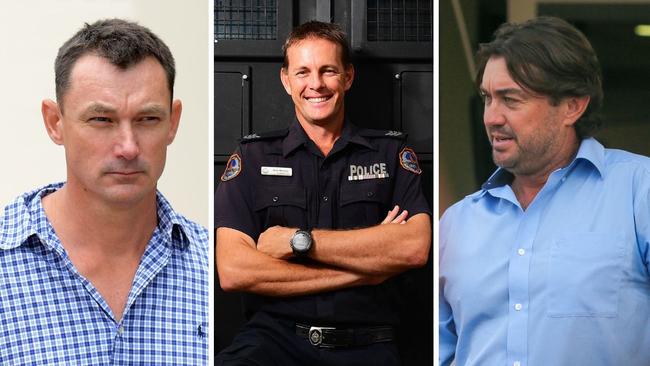
“We were devastated at the time when Willow was killed and now double devastated to find out the helicopter had run out of fuel while slinging Willow,” Wright said in video posted to his Instagram yesterday.
“Not only that but to also find out there was also cocaine derivatives in the pilot’s blood.
“My stance on drugs has been pretty strong – not doing them, not having any of my guys doing them – and to find this out has blown me away.
“If I had known he wouldn’t have been flying Willow nor would he have been flying any of our machines.”
The ATSB said that very low levels (less than 0.01 mg/L) of cocaine metabolites were detected in Robinson’s toxicology results, indicating that he may have been exposed to cocaine in the four days prior to the accident, but that there was no evidence that this contributed to the crash.
The report says that a blood sample was taken from Mr Robinson when he arrived at Royal Darwin Hospital almost eight hours after the crash.
The Australian understands that CareFlight nurses gave him blood transfusions on the way to Darwin.
“Cocaine itself is generally detectable in blood tests for up to 1–2 days after exposure and was not detected in the pilot’s blood,” the ATSB said.
“The detected levels indicated the pilot had not been exposed to cocaine within the previous 24 hours and may not have been affected by cocaine on the accident day.”
Mr Robinson told the ATSB he had not used cocaine.
Last night Robinson told The Australian he could not comment on the ATSB’s final report.
“However, I can say that earlier in the ATSB process, my lawyers wrote to ATSB to express serious concerns about some of the conclusions proposed to be drawn by the ATSB,” he said.
“My lawyers also placed on record our concerns that the ATSB proposed to issue a final report despite multiple serious criminal charges laid against several people concerning the event in question, and its aftermath, had yet to come to any conclusion.
“I maintain those concerns. On legal advice and respecting the ongoing legal processes, I cannot say anything more at this stage.”




